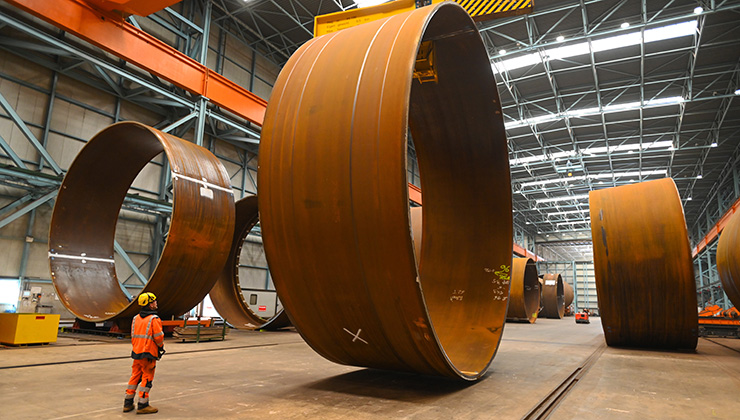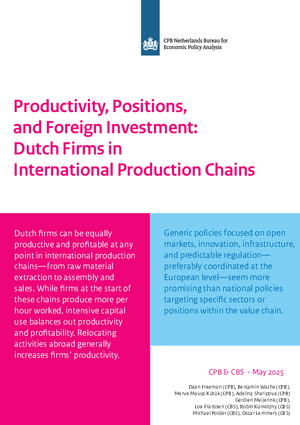Dutch firms in international production chains
Firm Position in the Production Chain Not Determinant of Productivity

Firms occupy various positions in international value chains, ranging from processing raw materials to selling consumer goods. CBS and CPB examined the relationship between a firm’s position in these chains and the productivity and profitability of Dutch firms. The aim of this research is to better understand how becoming more international can help firms improving their performance and to identify effective policy measures to support this process.
Productive Across the Chain
A firm’s position within an international value chain does not significantly influence its performance. Firms at the beginning of the chain, such as those in basic industries, may produce more per hour worked, but they also require more capital goods. As a result, they are not necessarily more productive overall. The same applies to profitability: a firm’s place in the chain does not clearly affect its profit margins. Dutch firms can be productive at all points along the value chain.
Foreign Investment
Firms generally become more productive when they invest abroad, especially when such investments allow them to enter new markets (rather than merely relocating parts of their production process). The effect varies by sector and is particularly beneficial for firms that initially had lower productivity, as well as for investments outside the EU. This effect may be driven by access to new technologies and knowledge.
Broad Rather than Targeted Policy
The study offers several insights for policy aimed at strengthening the international engagement of Dutch firms. There is no evidence to support government support based on a firm’s specific position within the value chain. Instead, policy should focus more broadly—on maintaining access to open markets, encouraging innovation, and supporting adaptability.
Contacts

Downloads
Authors





